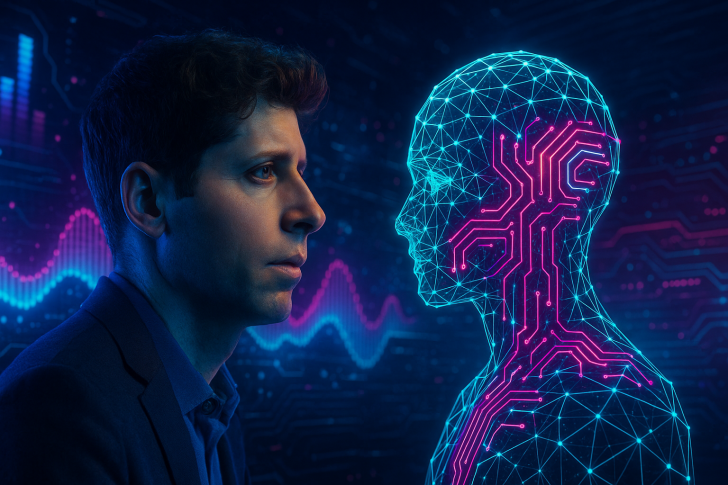If Altman's right, we're not just looking at faster research tools. We're watching AI become a genuine contributor to discovery itself.
Three Generations, Three Milestones
The AI world is buzzing after Haider. highlighted a bold statement from Sam Altman: GPT-5 is already producing early signs of original scientific thinking, and GPT-6 might represent a leap as significant as the jump from GPT-3 to GPT-4—but this time focused on real scientific problem-solving.
Altman laid out a clear progression:
- GPT-3 gave users the first "spiritual Turing test"—the feeling of talking to something that seemed intelligent, even if it couldn't really reason deeply
- GPT-5 is now showing early flashes of scientific creativity: spotting errors in papers, suggesting fresh hypotheses, and making connections researchers hadn't thought of
- GPT-6 is expected to deliver a transformational jump—potentially acting like a junior research partner that can handle multi-stage reasoning, cross-disciplinary synthesis, and even experiment design
This isn't just marketing hype. Researchers are already noticing GPT-5 doing things like proposing testable ideas and synthesizing insights from thousands of studies—behavior that goes beyond summarizing existing knowledge.
What This Could Mean
If GPT-6 delivers on Altman's vision, the ripple effects could reshape science and society. We're talking faster innovation cycles, democratized access to high-level research tools, and new ethical questions around authorship and credit. Fields like drug discovery, climate modeling, and materials science could see major acceleration. AI wouldn't replace scientists—but it could massively amplify what they're able to explore.
It's easy to dismiss bold claims about AI, but the evidence is stacking up: these systems are getting better at reasoning, synthesis, and hypothesis generation. True scientific creativity is still a high bar, and we should be cautious about overhyping early signals. But the trajectory is clear. GPT-3 made AI feel intelligent. GPT-5 hints at real reasoning. And GPT-6 might just kick off the first era of AI-driven discovery. If that happens, the way we create knowledge could change forever.
 Saad Ullah
Saad Ullah

 Saad Ullah
Saad Ullah


